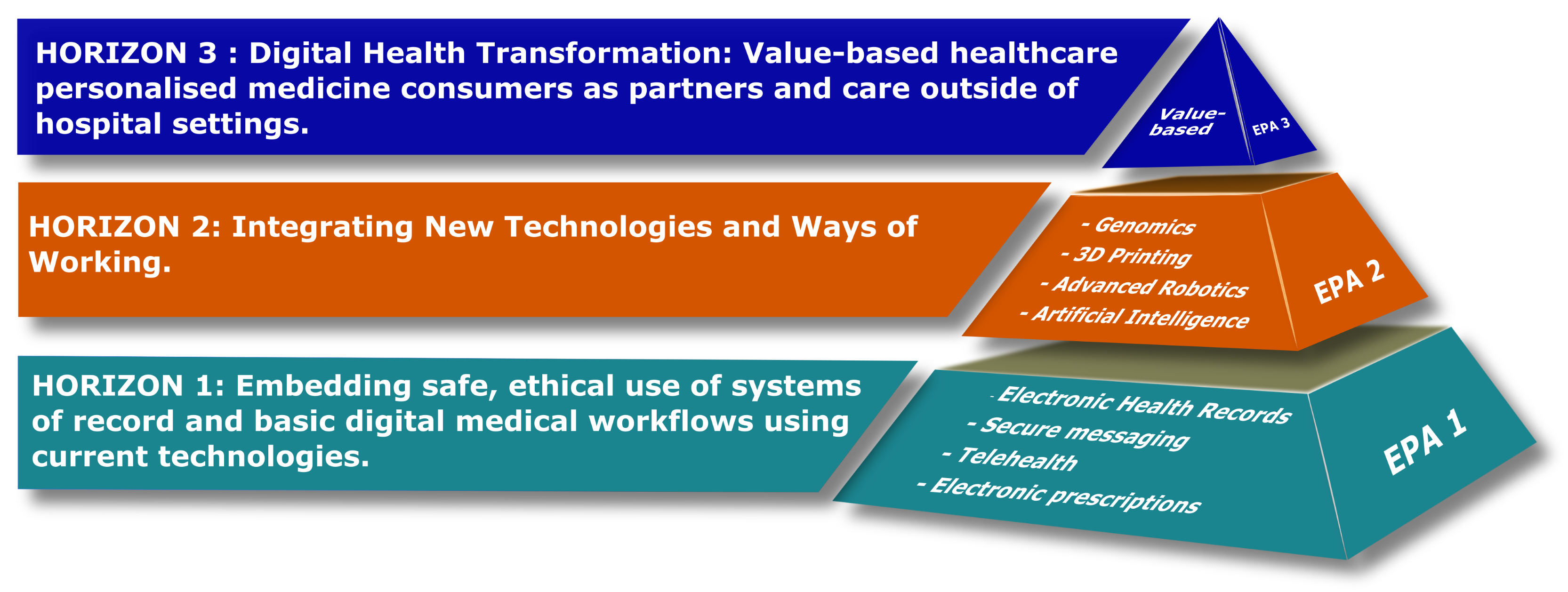Entrustable Professional Activities
What are Entrustable Professional Activities?
The accrediting body’s standards for medical programs require that medical schools provide students with opportunities to demonstrate their competence in various clinical tasks, activities or responsibilities. A certain amount of digital literacy is assumed before students enrol on the degree and the desired outcome metric is that medical students graduate with foundational digital competence so that they form part of a digitally capable medical health workforce. However, digital health, like any other medical education priority, needs to be built on sound medical education practice and integrated and aligned with the broader medical education program.
The Digital Capability Framework put forward by the Australian Medical Council proposes that a set of core foundation Entrustable Professional Activities (EPAs) are developed to achieve a digitally competent workforce. EPAs are an innovative development in competency-based medical education that is growing in popularity in medical education curricula globally. The concept is grounded in trust and the notion that staff and supervisors can ‘entrust’ less experienced members to perform tasks independently. EPAs can be used to translate competencies into clinical practice and are used to assess student capability in specific tasks or groups of tasks that students are expected to be able to perform, after appropriate training and supervision. EPAs are descriptors of work activities as opposed to competence which is usually attributed to the individual. EPAs also typically require multiple competencies. EPAs also align with the Australian Medical Council’s (AMC) goal of providing students with hands-on training and exposure to real-world scenarios, which is essential in integrating digital health into medical education. Each of the proposed digital health EPAs provide learning opportunities at four levels of performance:
- Knowledge
- Routinised practice
- Problem-solving
- Leadership
Assessment of digital health delivered through the EPAs could be achieved with the support of supervisors and/or peer assessors at the above four levels of performance for each EPA. The Digital Capability Framework discussed above focuses on the foundational skills in digital health required for all medical doctors aligned with the three horizons of Australia’s National Digital Health Workforce and Education Roadmap.

